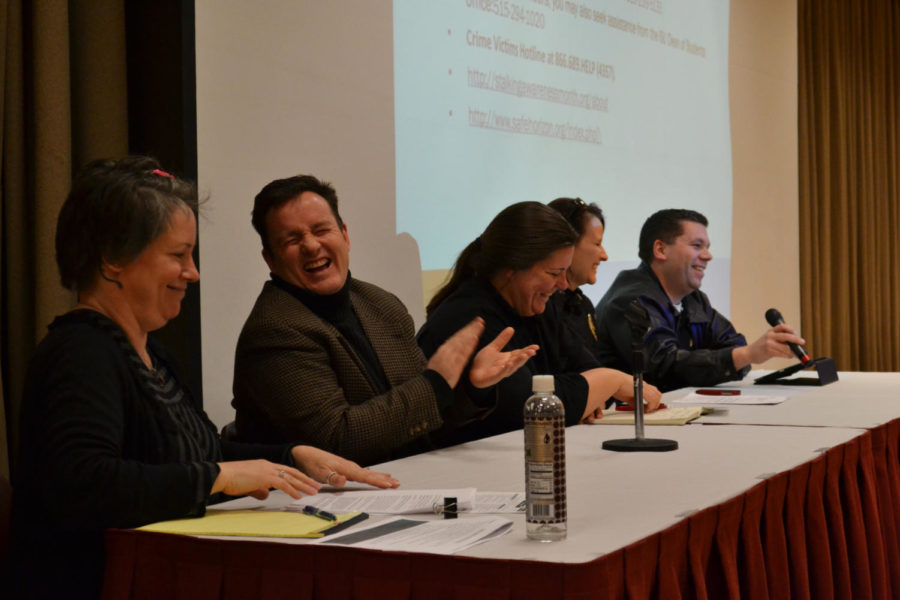Panel addresses social media and stalking
Photos: David Babayev/Iowa State Daily
A panel including a variety of representatives from different Iowa State services discusses the causes and effects of the on-going problem of social media’s effects on stalking and harassment.
January 26, 2012
The panel “Don’t Follow Me; This isn’t Twitter #StalkingAwarenessPanel” on Thursday night discussed the loss of privacy due to social media.
Technology and social media allow for personal information to be more accessible to stalkers.
“I think social media allows for stalking to occur more frequently because it is easier to hide behind a computer than stalk someone in person,” said Aaron DeLashmutt, police lieutenant with ISU Police.
Shelly McQueeney, executive director of ACCESS, said social media allows for stalkers to have more information about their victims, and as a result, victims have a harder time coping with it.
“Social media, like Facebook or Twitter, encourage people to make posts about feelings,” said Carrie Jacobs, police lieutenant with ISU Police. “It gives a stalker the power to manipulate you.”
Many online sites offer privacy settings, but even with these settings in place, panelists explained that public databases can still provide information like phone numbers, addresses and possibly car insurance information.
“It is hard to keep up with privacy settings and to keep your information secure unless you go completely off the grid,” DeLashmutt said. “You don’t have to live your life constantly peeking out the window, but you just need to be aware of what’s going on around you.”
Panelists reported that in addition to posting information on social media, technology advances have also allowed for new forms of stalking. Smartphones with GPS service can be used as tracking devices. In addition, some websites allow for people to disguise their phone numbers while making calls.
“It is just truly amazing what some of this technology can do and how people are so unaware of it,” Jacobs said. “The good thing is that I get to also use technology in catching the perpetrator.”
Iowa State University offers both judicial and counseling services to all students possibly being stalked.
The Office of Judicial Affairs works with ISU law enforcement to put an end to any harassment or stalking concerns. Behaviors are addressed by both formal judicial charges and conversations for situations in which stalking behavior is unintentional.
ACCESS, a local domestic violence and sexual assault center, and Student Assistance and Outreach Services are organizations that work with victims on an emotional level. These resources allow for students to navigate the university to regain a sense of privacy.
“We want to empower students to cope with harassment or stalking situations and continue with their education in the best manner possible,” said Keith Robinder, director of Student Assistance and Outreach services.
Overall, panelists agreed that everyone needs to be smarter about what information they share online, even if they are not victims of stalking.

















